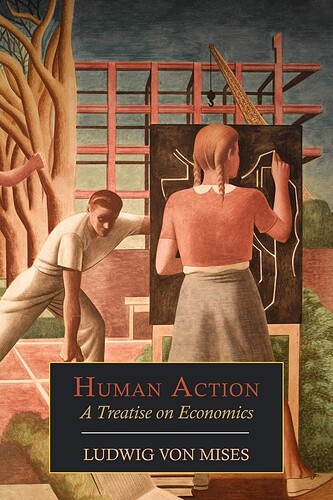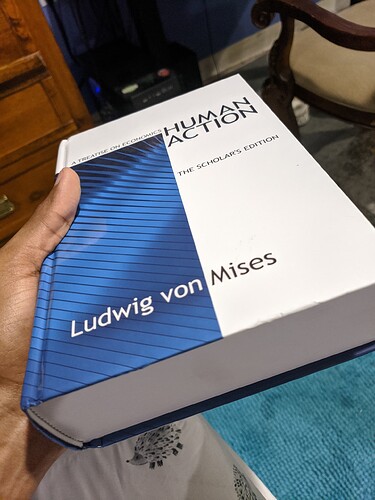The Basics: Praxeology
Logic constitutes a shortcut that allows us to root out all those theories that don’t even comply with the most basic of all perceivable aspects of sense evidence, namely the non-contradictory nature (=consistency) of reality. The above refutation of the supposed invalidity of sense evidence would be one example of the application of logic.
Human Action is that subset of science that focuses on the examination of theories about organic matter’s consciously chosen, that is non-instinctive, behavior.
Praxeology in turn is a subset of Human Action. It is the examination of all those theories that propose general attributes of non-instinctive action. The most basic theory that is at the root of all praxeological inquiry is this: Every non-instinctive action is the selection of more over less preferable means and their subsequent application to attain a deliberately chosen end.
If one were to set out to try and refute the above theory he would himself be aiming at a deliberately chosen goal (i.e. refuting the theory), employing means that he prefers most to refute it (i.e. write articles, engage in debates,etc). He would thus be affirming the theory in the process of attempting to refute it. This is why the theory can be considered axiomatic.
Praxeology mostly examines theories that claim that certain means are appropriate to attain certain ends. It does not explain the thought process that leads to the decision of pursuing a certain aim (psychology). Nor does it question the morality of the actor’s ends (ethics). It merely examines whether the means employed are fit to attain the end sought.
Every non-instinctive action is an act of exchange. At any given point in time, a conscious actor trades one state of affairs for a different one. This is the driving force of all non-instinctive action.
recommend watching/reading from these sources:
http://alertandoriented.com/an-introduction-to-praxeology-and-austrian-school-economics/





